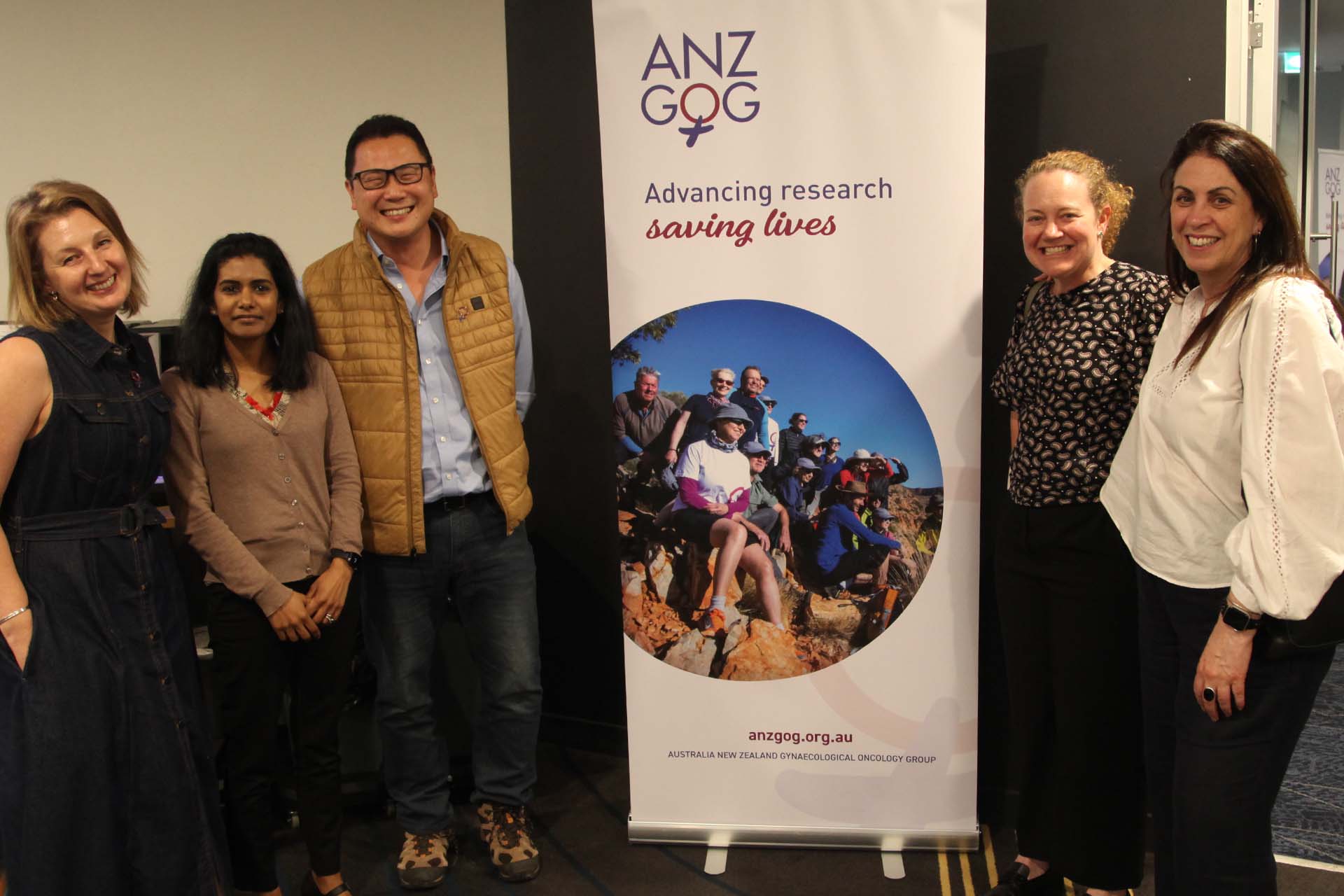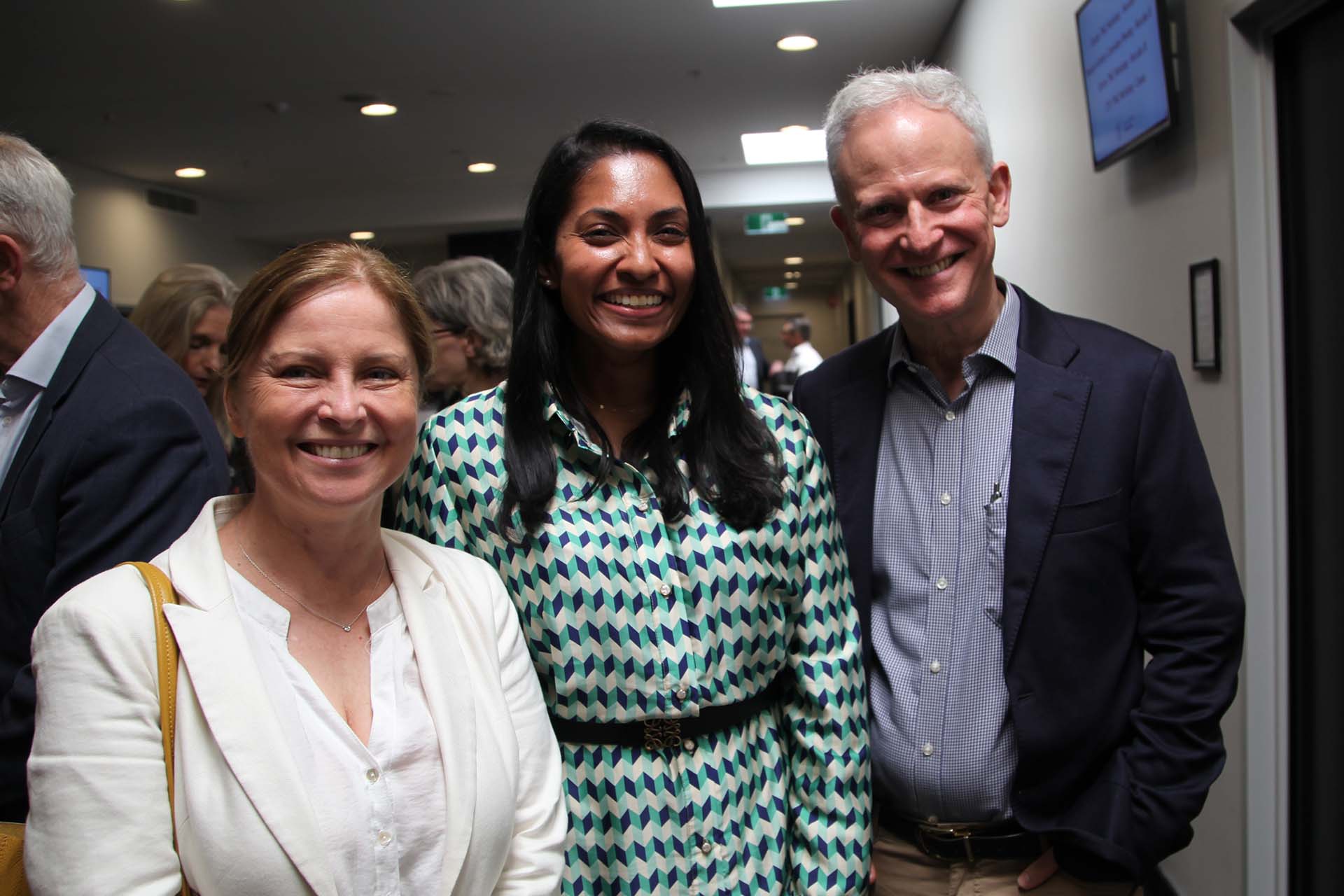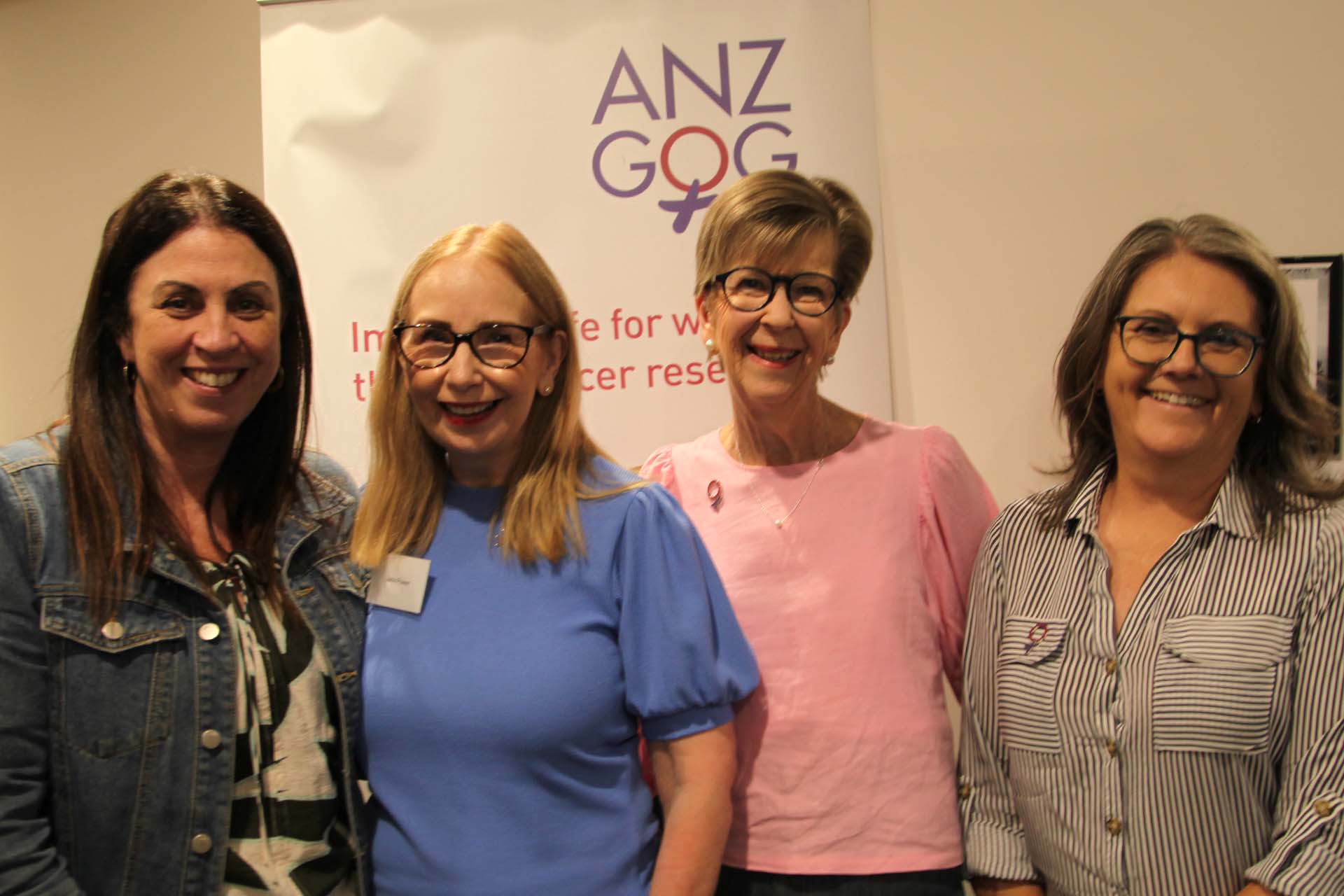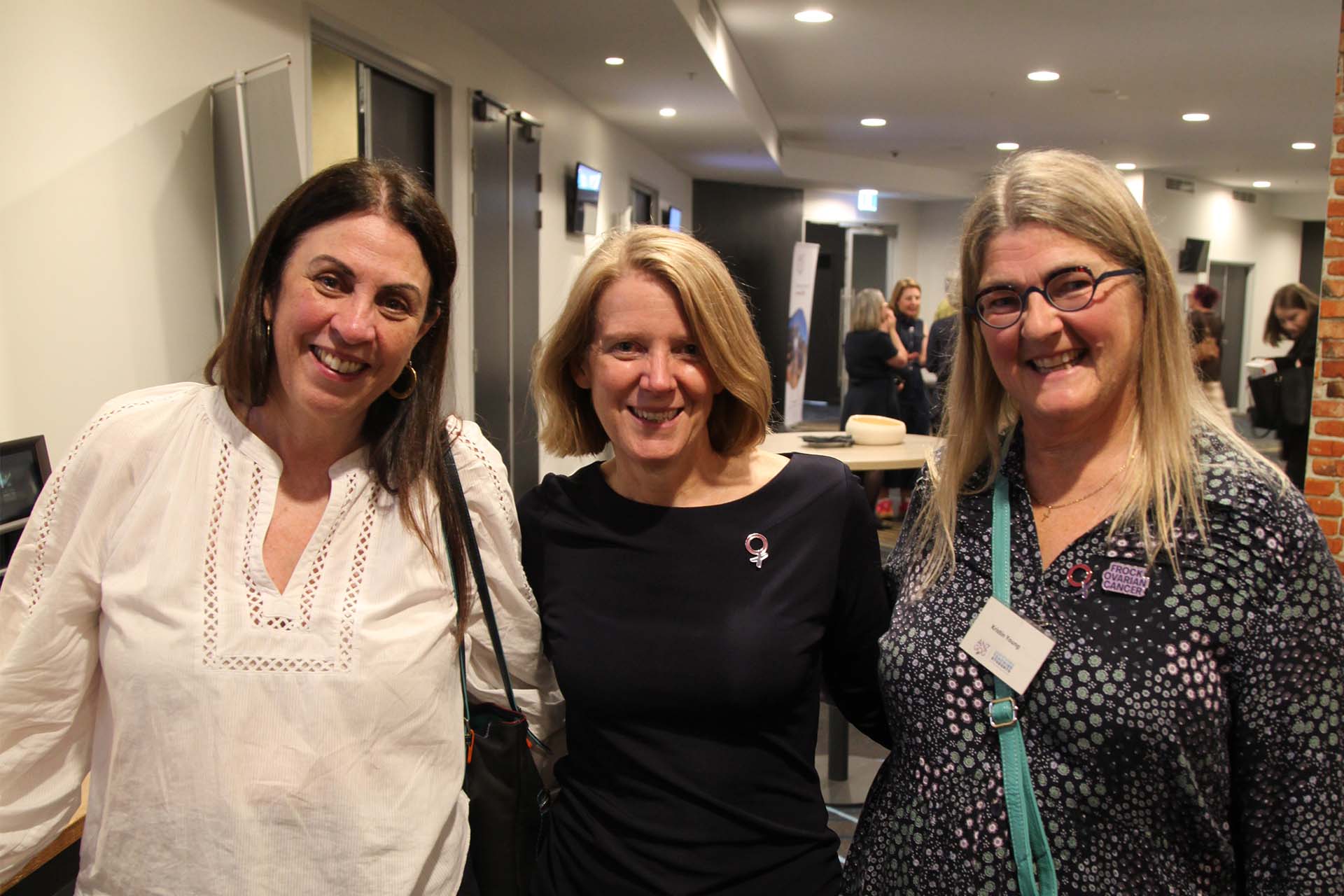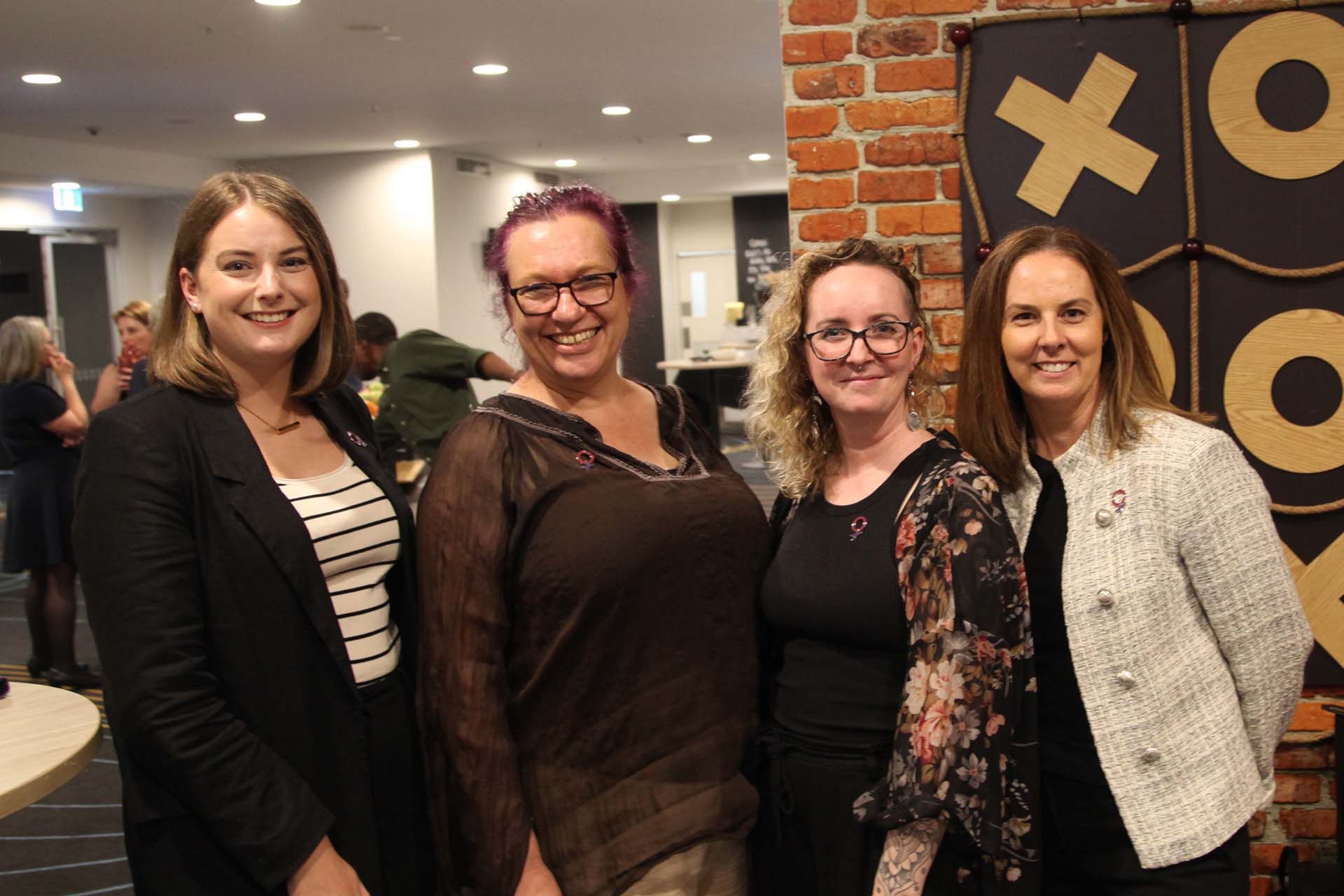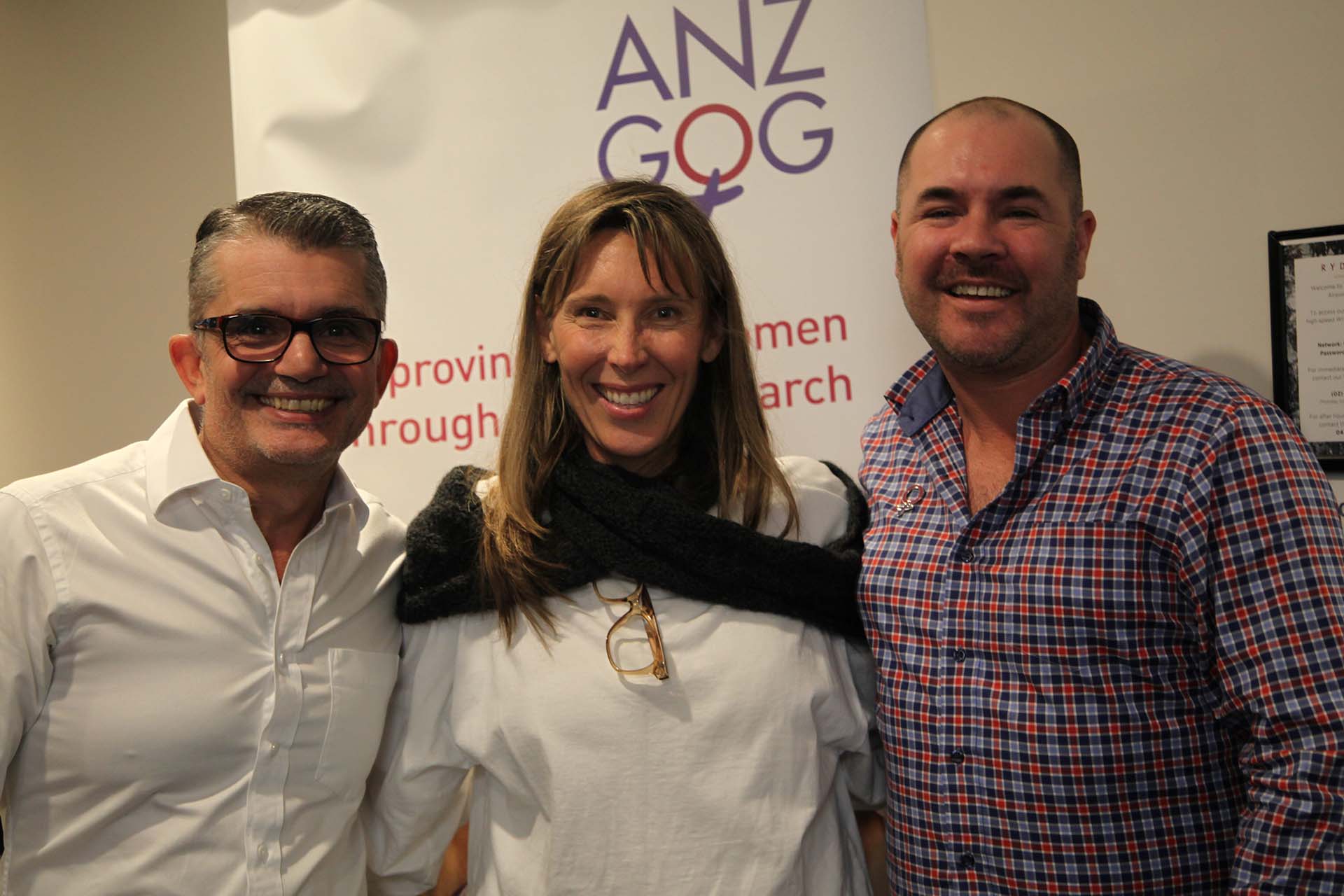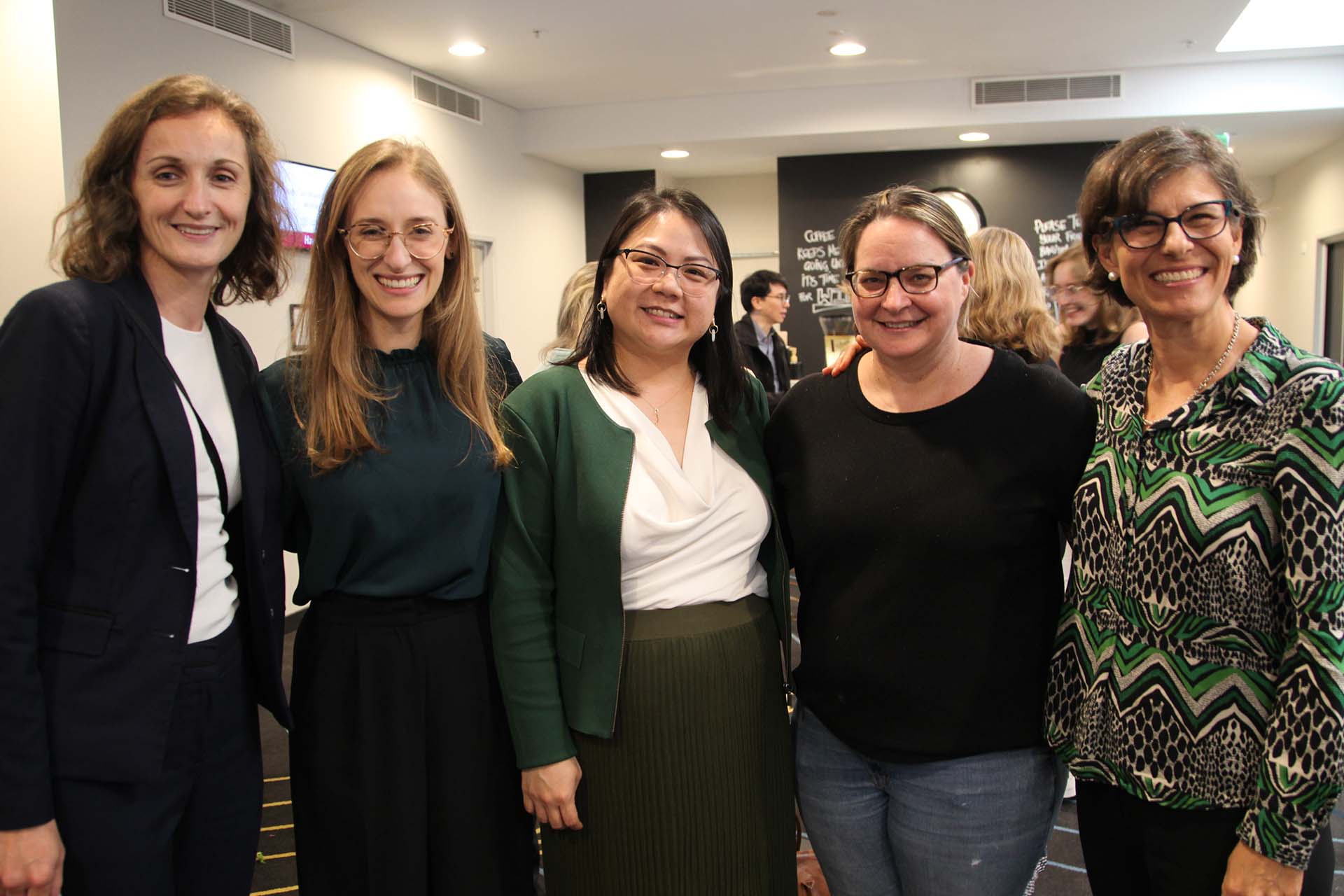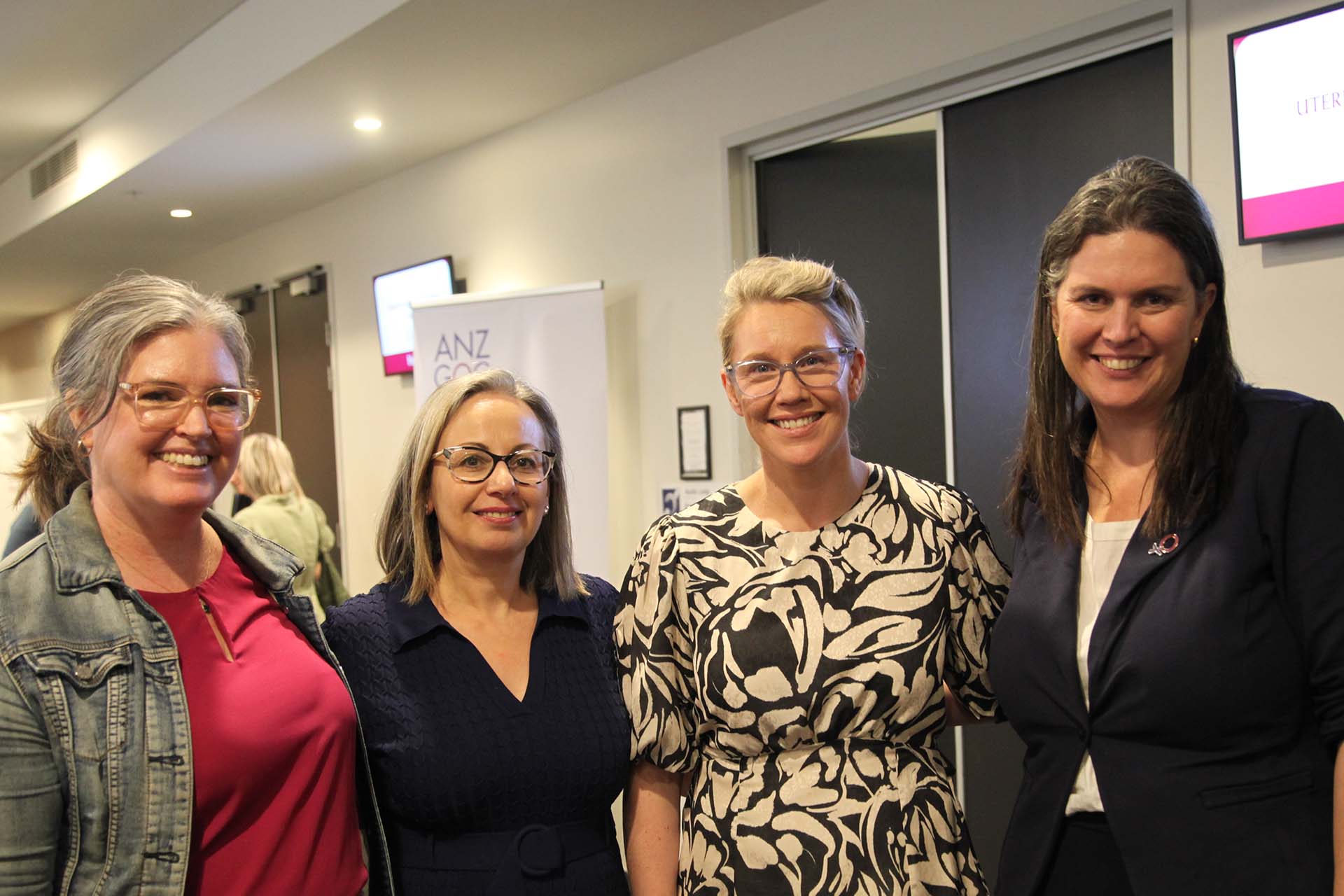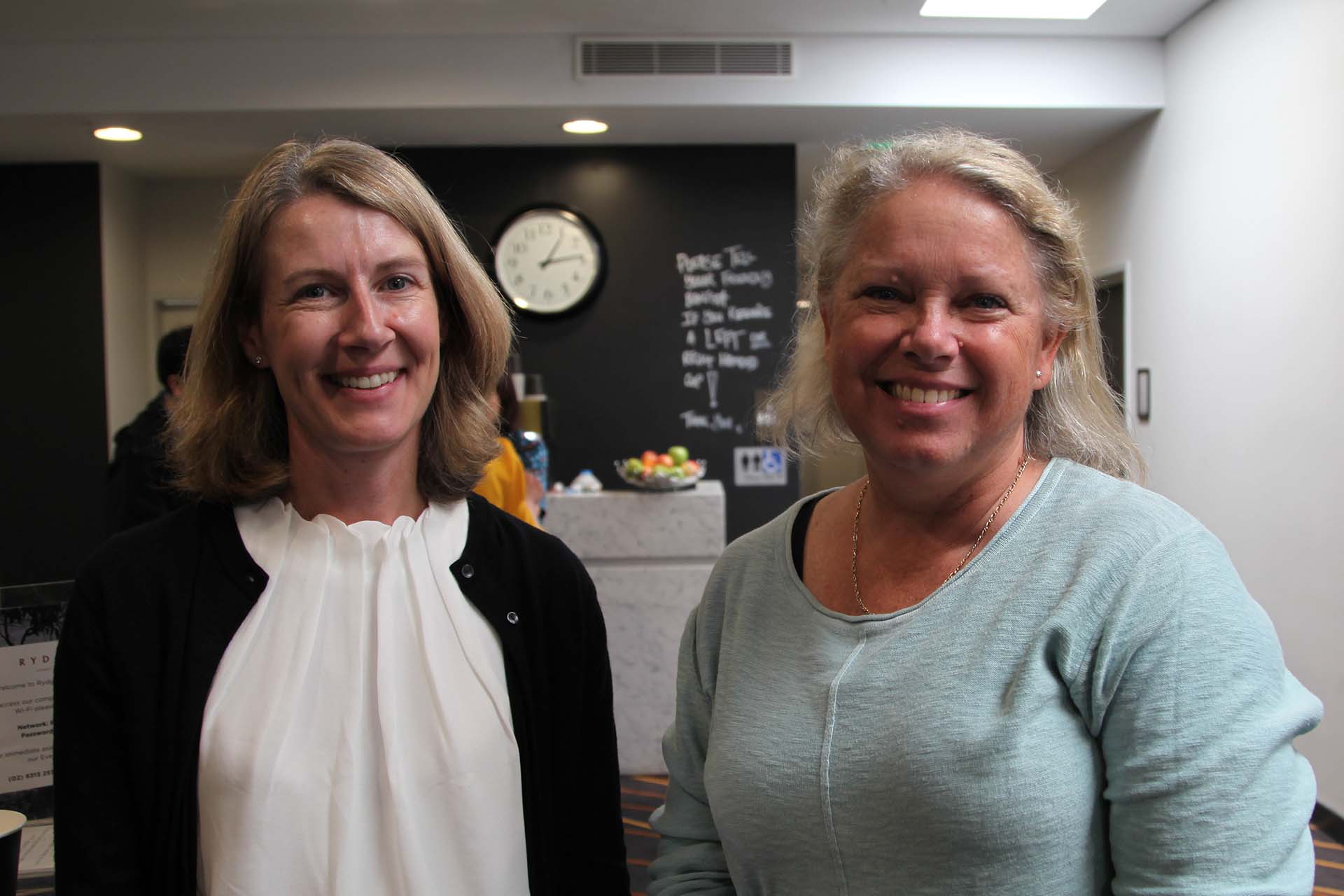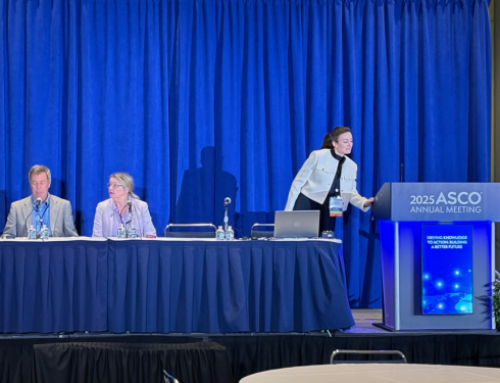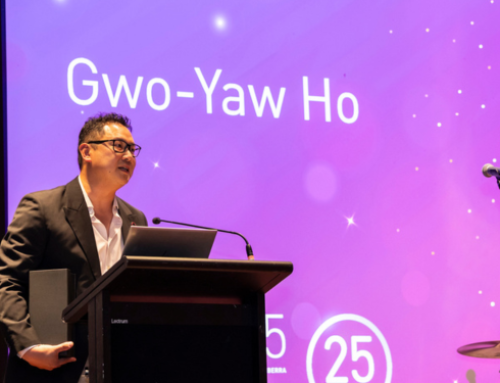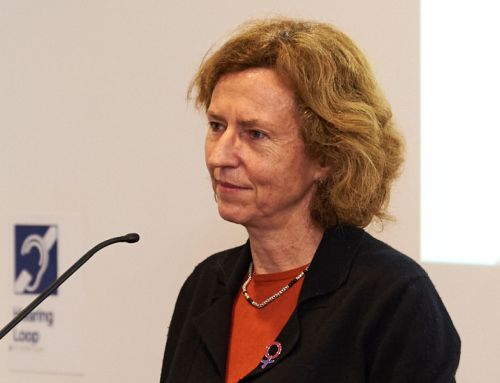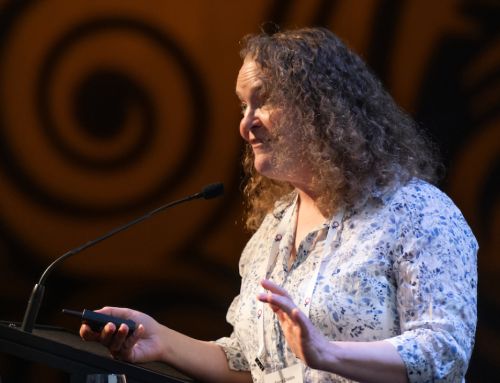Prof Paul Cohen, Chair of the ANZGOG Research Advisory Committee (RAC), shares his thoughts on the strategy planning workshops held on 31 October and the Research Development Day held on 1 November at the Rydges Airport Hotel in Sydney.
“In late October 2024 ANZGOG held two half day in-person workshops prior to our annual Research Development Day. We are currently reviewing our approach to education, mentoring and supporting future leaders within ANZGOG and the Education, Mentoring, and Succession Workshop provided highly valuable insights from early career members and emerging ANZGOG leaders. Through our Community Engagement Program people with a lived experience of gynaecological cancer can contribute to research at every stage of development, and the inaugural Community and Researcher Strategy Workshop was held to exchange ideas between ANZGOG research leaders and community volunteers to set research priorities. An OASIS Strategy Workshop, Study Coordinators Committee Workshop, Survivors Teaching Students Regional Coordinators Workshop and Tumour Working Group Ideas Generation Workshops were followed by ANZGOG’s Research Advisory Committee meeting. Several new study concepts including Fund for New Research submissions were presented as well as ‘blue sky’ planning discussions.
It was immensely exciting to see the variety and potential impact of these novel concepts. The two days of workshops and meetings focused on expanding the reach, relevance, and impact of ANZGOG’s research, fostering collaboration, strengthening education and mentorship, and underscore our commitment to advancing gynaecological cancer research, collaboration, and supporting professional development.
I would like to express my sincere thanks to everyone who took part and to the wonderful ANZGOG Staff for organising and ensuring the success of these workshops and committee meetings.”
OASIS Strategy Workshop
Reflecting on a decade of progress, this workshop highlighted advances in molecular profiling and signal seeking in gynaecological clinical trials. Attendees included current and founding OASIS Steering Committee members, ANZGOG researchers, and clinicians actively pursuing new drug development target pathways research. The group had a comprehensive discussion on unmet needs and strategies to reinvigorate the OASIS program for 2025.
Education, mentoring and succession workshop
The Education, Mentoring and Succession workshop brought members together to explore new ideas for enhancing education, mentoring, and leadership development within ANZGOG. The team discussed topics such as:
- Education opportunities within ANZGOG
- Mentoring programs
- Building and supporting future leaders
Key Insights:
The Value of Joining ANZGOG: Participants expressed overwhelming satisfaction with their membership, describing it as “joining a family.” Beyond research, ANZGOG provides valuable connections, friendships, and opportunities for collaboration, learning, and idea-sharing.
Education at ANZGOG: While ANZGOG’s core role is as a research body, the group also highlighted the significant potential for education to further foster connections and resource-sharing. By identifying relevant topics and promoting existing educational resources we can reinforce the value of ANZGOG’s educational offering.
Mentoring emerged as a cornerstone of ANZGOG’s collaborative culture. Participants shared their positive experiences as both mentors and mentees, noting how mentoring contributes to personal and professional growth with mutual benefits for both mentors and mentees.
Developing Future Leaders: Education and mentoring were identified as vital tools for nurturing the skills and confidence needed for leadership within ANZGOG. Continuing to foster a collaborative culture through leadership, raising awareness and providing pathways for emerging leaders, and identifying strategies to promote and support leadership opportunities would all offer ways to help support and develop future leaders.
The workshop provided valuable insights that will help shape ANZGOG’s ongoing efforts to enhance education, mentoring, and leadership development. We look forward to implementing these ideas to create even more opportunities for members to grow, connect, and lead within ANZGOG.
Stay tuned for upcoming initiatives and opportunities to engage with ANZGOG ‘s educational and mentoring programs!

Inaugrual Community and Researcher Strategy Workshop
Through ANZGOG’s Community Engagement Program we are creating a model of community involvement where people with a lived experience of gynaecological cancer can contribute to ANZGOG research at every stage of the development process. This workshop allowed for an exchange of ideas between ANZGOG research leaders and community volunteers. Discussion focused on gaps in knowledge and areas of need along the care pathway that could lend themselves to research to improve outcomes and quality of life for people with a lived experience of gynaecological cancer, and ways to make clinical trials more accessible. Within the framework of the ANZGOG Strategic Plan 2023-2028, the outcomes of this facilitated workshop will inform ANZGOG’s future directions in research. This is an important activity in ensuring ANZGOG’s strategies, priorities and activities are informed by, and reflect, the diverse needs of people with a lived experience of gynaecological cancer.

The following day, ANZGOG’s Survivors Teaching Students (STS) Regional Coordinators gathered for a half-day workshop held concurrently with the Tumour Working Group Meetings. Through a range of presentations, the Regional Coordinators had the opportunity to broaden their understanding of different types of gynaecological cancers, learn about the EDEN initiative, meet key ANZGOG staff and program plan for 2025.
Ovarian Tumour Working Group (OTWG)
Dr Michelle Wilson (Medical Oncologist, Auckland Hospital) chaired the November 2024 meeting and the attendees represented a diverse range of backgrounds and expertise, including surgeons, consumer representatives, clinician-scientists, radiation oncologists, early-career researchers, and research scientists. This multidisciplinary group generated productive and encouraging feedback during each presentation, and during ‘blue sky planning’ discussions.
Dr. Gwo-Yaw Ho introduced the N-COPP trial, prompting discussions and the formation of a working group to refine its design. Updates on projects by Dr. Nicola Meagher and Dr Niveditha Rajadevan sparked productive dialogues, with continued discussions planned for the next meeting.
Uterine Tumour Working Group (UTWG)
Dr Janine Lombard chaired the working group meeting, during which the committee received updates on current concepts, with valuable discussion and feedback to be shared with the concept working groups and study PIs prior to further RAC review.
Two new concepts were presented and discussed in depth during the working group meeting. Dr Rachel Delahunty presented ‘Demonstration of feasibility and selection of the best ctDNA technology for assessment of minimal residual disease in EC’ and Dr Sandy Simon presented ‘Pilot Patient Preference Study for Endometrial Cancer Trial’. Both concepts will have some further consideration and consultation prior to discussion at the next UTWG meeting in early 2025.
The working group also received updates regarding the EDEN project and ANZGOG Research Development.
Cervical Vulvar and Vaginal Tumour Working Group (CVVTWG)
This discussion, chaired by Dr Ming-Yin Lin was a great opportunity for the ANZGOG community to come together, to foster new relationships and collaborations and workshop the future of ANZGOGs research portfolio in the CVV space. It included two consumer representatives alongside the multidisciplinary team, one of whom was new to the research space.
Dr Sam Saidi and Dr Ming-Yin Lin presented new proposals including a proposal on behalf of Dr Felicia Roncolato. There was much discussion on the development of ongoing research concepts too.
John Andrews provided an ANZGOG research development update, including a recap of the ANZGOG strategic plan, a rundown of the types of trials ANZGOG are involved with and the plan to move forward focusing on a diversified research portfolio expanded to include areas such as surgery, quality of life and integration of the EDI strategy.
Study Coordinators Committee
This productive workshop was contributed to by representatives from WA, VIC, NSW and NZ.
A presentation by the Australian Clinical Trials Education Centre (A-CTEC) was enthusiastically received. The vision of A-CTEC is to build the capacity and capability of the clinical trials workforce in Australia through easy access to world-class education and training opportunities, at no cost to the end user. Education and training resources are accessed through a dedicated Learning Management System (LMS) with offerings focusing on six domains: scientific thinking, study management, regulatory management, interactions with participants, laboratory operations and professional skills. The SCC considered this a valuable resource for those working in clinical trials of all levels of experience, across a range of settings. To find out more: https://actec.myopenlms.net/
Invited speakers, IQVIA, provided a detailed overview of their model of in-home trial support, providing proof of principle that the model can be successfully implemented. Engaged discussion followed with SCC interest in exploring the in-home trial support model further for ANZGOG trials, acknowledging that trial budgets will be the biggest challenge to implementation. However, subject to funding capacity, this model appears beneficial for both participant and site.
The SCC members have compiled a list of valuable educational resources for clinical trial operations, which may be particularly useful for ANZGOG site coordinators. This curated resource is under final review and will be available to ANZGOG members shortly: watch this space!
Research Advisory Committee
Four new concepts were presented to the RAC – three that were developed by ANZGOG members and one international collaborative trial opportunity. These presentations prompted discussion amongst the committee members and ensured each investigator received extensive multidisciplinary feedback regarding their concepts. The 2024 Fund for New Research (FFNR) applications were also reviewed during the meeting to confirm suitability for ANZGOG-led grant panel scoring, the outcomes of which will be announced soon. The RAC was also fortunate to receive comprehensive updates from each of the Tumour Working Group (TWG) Chairs or Chair Elects regarding the work undertaken in the respective Ideas Generation Workshop that morning. Each TWG has a healthy body of work being developed within, which the RAC will review when each idea has matured for presentation to the committee to contribute to ANZGOG’s existing research portfolio.
A big thank you to everyone who made this event a huge success!
